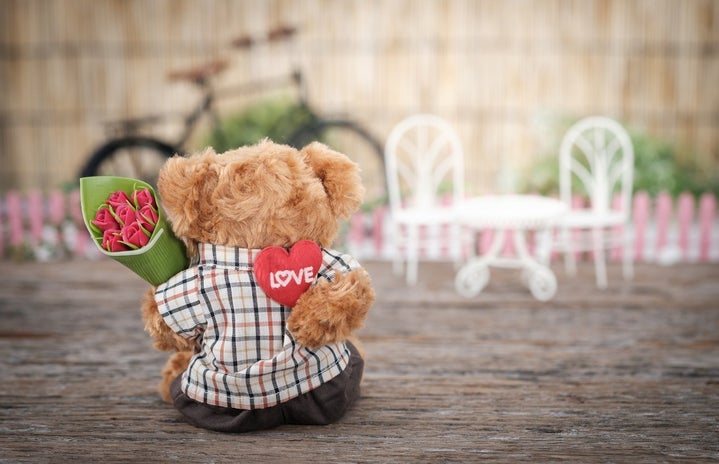I’m pretty sure it’s safe to say that most of us could benefit from therapy, or at least some form of comfort. It’s a scary time and it’s easy to feel lost and dissociate a bit from reality at a time like this. And while I don’t have a therapy animal, I do have the few stuffed animals I brought with me from home. And although they’re just some fabric filled with stuffing and some embroidered eyes, it’s been proven that stuffed animals can actually improve your mental health.
For many people, stuffed animals represent a form of comfort, often a nostalgic one since most of us can remember growing up with a favorite stuffed animal that we loved and maybe still have. Objects like these that kids carry around with them are often called “transition” objects; things like baby blankets, favorite stuffed animals or a special pillow can be a child’s go-to when they’re scared or lonely or just want something to cuddle. As they get older, an item like this may be referred to as a “comfort” object. And although some people think that having a stuffed animal for comfort as an adult is childish, studies have proved that having a stuffed animal as an outlet for comfort and soothing actually has significant mental health benefits. According to a study found on goodtherapy.org, therapy animals were very beneficial for mental health for a variety of reasons (including the sense of comfort and familiarity for those with childhood trauma), but stuffed animals are a worthy substitute for a real animal in a pinch. They represent a sense of security and unwavering support, as well as being considerably cheaper. This study also found that stuffed animals particularly help those with high levels of dissociation, since they can help ground the person in reality via touch and a sense of security. So for those who don’t have a pet or an outlet for touch and comfort, a stuffed animal or two may just be a good option, at least for a bit of comfort through dark times.
And besides just the proven health benefits, stuffed animals are just a good thing to have around in general. They’re always there if you need a cuddle or want something to stand guard over your bed, and they are usually just plain adorable and a wonderful conversation piece. Regardless of how others may view them, I have found that I’ve never been the worse for wear when I have a few plush friends by my side.



